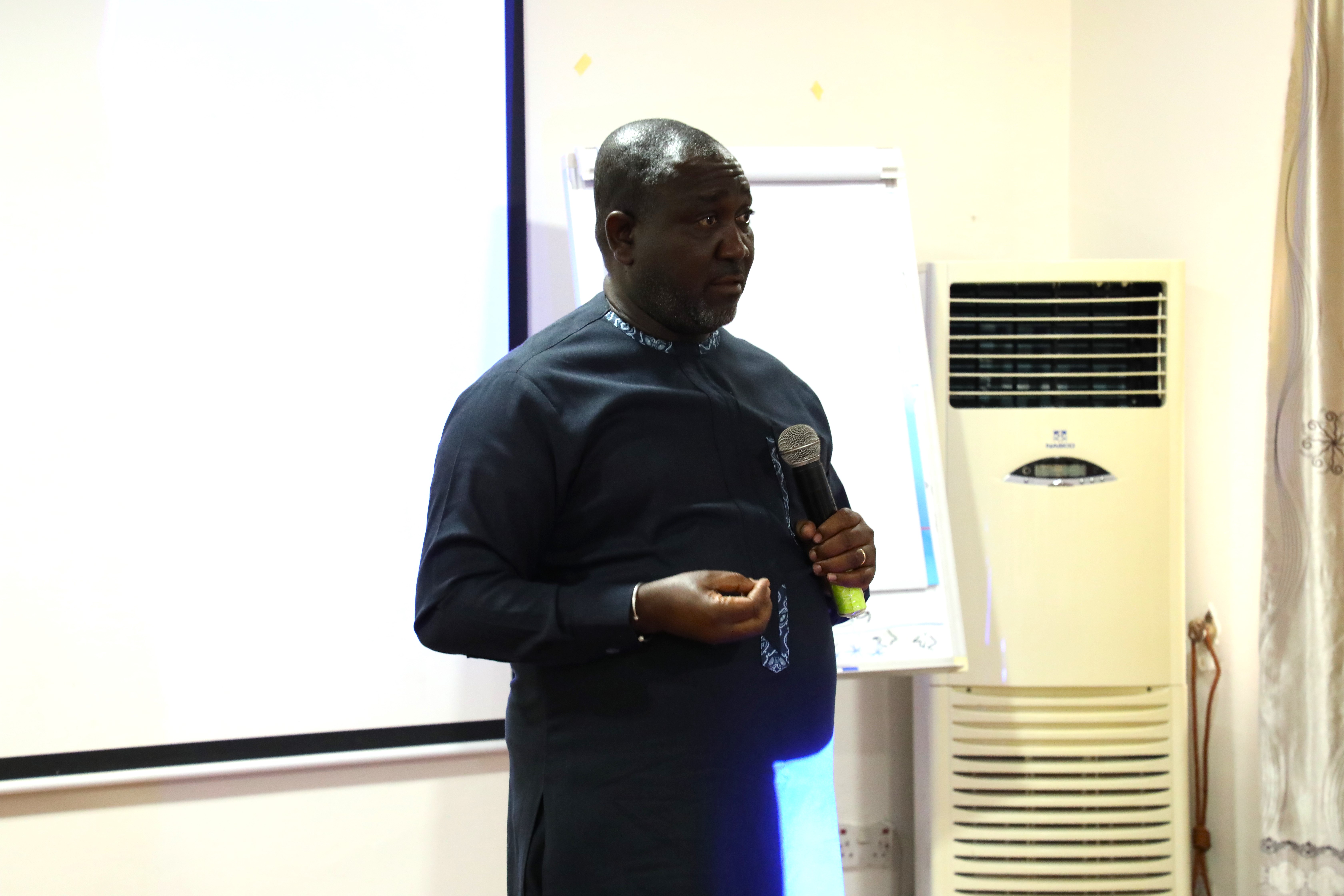Journalists trained to Counter Hate Speech and Promote Peace
June 11, 2024

Trained journalist in a group photo
The media plays a pivotal role in shaping public discourse, especially during critical periods like election seasons. As a key source of information and a platform for disseminating views, the media significantly influences public perception and behavior.
In Ghana, the United Nations Development Programme (UNDP), in partnership with the Media Foundation for West Africa (MFWA), organized a comprehensive training program for journalists in Northern Ghana to curb the rise of hate speech and promote peace ahead of the 2024 election.
The “Training for journalists on hate speech and counter narrative” is part of UNDP's efforts to prevent and respond to violent extremism in the Atlantic Corridor with funding from the Government of Norway.
In his remarks, the Head of Inclusive Growth and Accountable Governance, Dr. Edward Ampratwum, noted that, “as Ghana approaches its elections, it's crucial that we tackle the spread of hate speech and disinformation. UNDP, is committed to working with its partners, including the media, to promote fact-based reporting and counter harmful narratives to promote peace, inclusivity, and a stable democracy for all Ghanaians”.

Dr. Edward Ampratwum delivering his remarks
On his part, the Executive Secretary of the National Media Commission, George Sarpong, added that, "the media acts as a source of information and influencer of public opinion, therefore they must ensure accuracy, fairness, and transparency in their reporting to provide balanced coverage and uphold the highest journalistic standards to promote peace”.

the Executive Secretary of the National Media Commission, George Sarpong, delivering his remarks
Alhaji Sani Razak a representative from the National Peace council urged the media to be very vigilant in their reporting as the spread of hate speech and misinformation through the media can have severe consequences for national security and social stability. And urged media professionals to prioritize responsible reporting and fact-checking to prevent the escalation of conflicts and promote peace.
The journalists commended UNDP Ghana's media training on fact-checking, saying “this media training on fact checking has been of great benefit to me. I want to commend UNDP Ghana and its partners for the timeliness of this training. I have come to understand that it is important for us Journalists to curb sensationalism in our work which will go a long way to promote peace”. noted, Regina Suwle, Project lead, Radio Progress Upper West Region of Ghana.

A beneficiary sharing her testimony
As Ghana approaches its next electoral milestone, such initiatives are crucial in ensuring that the media contributes positively to national stability and social cohesion, paving the way for peaceful and democratic elections.
Responsible reporting and counter narratives can help combat hate speech and misinformation, which can fuel violence and social unrest. By promoting fact-based reporting and diverse perspectives, media professionals can help create a more informed and engaged citizenry.

 Locations
Locations



